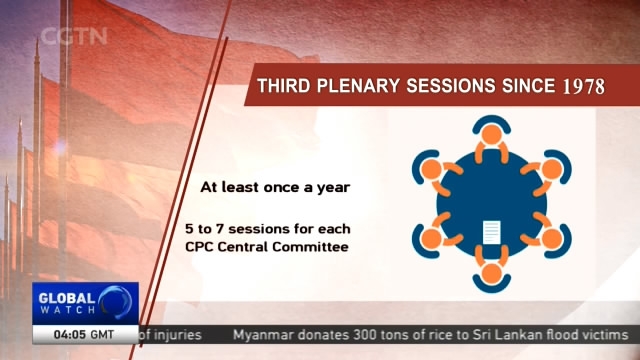
12:29, 26-Feb-2018
Third Plenary Session: Significance, main tasks of third plenary session of each CPC Central Committee

Now let's take a closer look at the significance and importance of the third plenary session.
Each CPC Central Committee has a number of plenary sessions, which should be held at least once per year. Normally there are five to seven sessions for each CPC Central Committee. The third plenary session plays a significant role as its main tasks are deliberating on economic reforms, and arranging economic work.
In 1978, the third plenary session of the 11th CPC Central Committee decided on implementing reforms and opening up policy, which was a big step in China's economic history. Five years later, the third plenary session extended the reforms from the countryside to the cities. Then in 1988, it passed preliminary proposals on wage reforms, paving the way for deepened reforms.
In 1993, the third plenary session established a basic framework for a market economic system. Then they decided to build a 'New Socialist Countryside' in 1998.
Entering the new century, in 2003, the third plenary session of the 16th CPC Central Committee, made decisions on perfecting the socialist market economic system. After five years, the third plenary session focused on problems concerning agriculture, the countryside, and farmers. In 2013, the plenary session of 18th CPC Central Committee deepened reforms overall.

SITEMAP
Copyright © 2018 CGTN. Beijing ICP prepared NO.16065310-3
Copyright © 2018 CGTN. Beijing ICP prepared NO.16065310-3